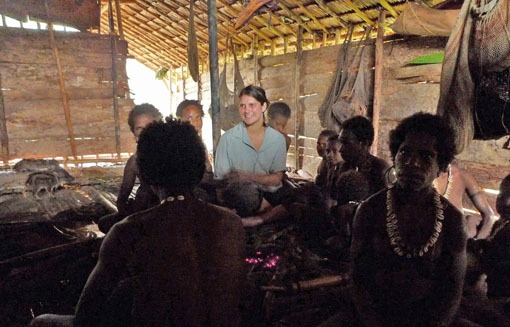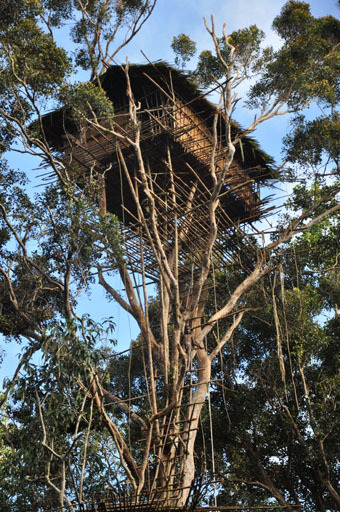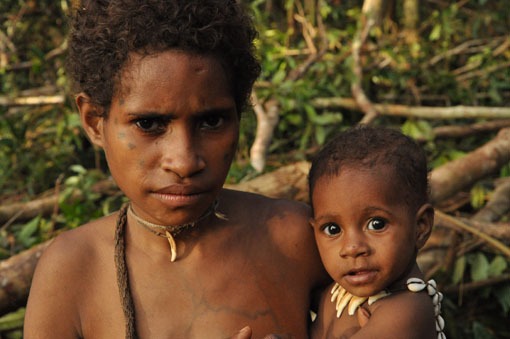This post courtesy BBC Earth. For more wildlife news, find BBC Earth on Facebook and Posterous.
When encountering persons of the same sex, you often wonder what natural similarities you may find. And it’s no different when you meet members of a remote tribe living in the dense vegetation of the jungle. BBC Earth researcher Rachael Kinley shares her intimate and humorous tale of what happened when the women of the Korowai Tribe in Papua invited her into their tree house.
By Rachael Kinley, Researcher, Jungles/Oceans team
Before filming begins, it’s important to spend time with the contributors without big cameras in their faces. It helps to strike up a friendly rapport and make the future weeks more productive and enjoyable for all. So, our first day in Papua with the Korowai is spent in their home, a tree house.

Making friends in the treehouse Korowai houses are communal and split into male and female sides, to avoid furtive touching in the evenings. So, as the rest of the crew, including the translator are men, I sit down with the women, while the crew all head outside to take in the view from the male balcony.
Friendship-forming begins inside the house. In the UK, we’d receive cups of tea and cake; here, it’s fire-charred lumps of sago palm, fresh from the flames. We start making net bags together, rolling lengths of rattan along our thighs, entwining the fibres to form a string which is then plaited together to create a bag that is strong enough to hold up to 70kg.

Whilst we are winding, I try to spark up a conversation. But with Jim, our translator, out of sight this gets to be a bit tricky. I only know one word in their language, and they know none in mine. I begin by pointing at items around us and learning the words for their shell necklaces, pet pig, and net bags. After we’ve exhausted everything on their person, the tables are turned and they start pointing and teaching me words for parts of my body: hair is “habianto” and breast, “am”. They seem to be extremely intrigued by my breasts.
A couple of children reach over and prod them. The older women giggle, encouraging the girls on. The next thing I know, they start to unbutton my shirt. The Korowai are amazed at the lifting properties of my Gossard Superboost bra. They begin to imitate its effect by cupping their own breasts in their hands with curious looks. It feels slightly surreal to be sitting, meters up in a jungle tree house, being communally undressed by several women and children. I help them to unfasten the clasp and the women stroke my breasts, smiling, giggling, repeating “am am am”.

It’s lovely, it’s touching, we laugh together and are definitely bonding. But amidst all this, my mind is thinking why couldn’t this be at the end of the four weeks in the jungle when I’d definitely be much thinner? I guess that you can take your clothes off in the jungle, but it’s harder to get your head out of the UK.








